#The Lavender Herbal
Text






New in The Spiral House at Portland Button Works!
These wearable botanical charms are harvested from the Spiral House garden or ethically foraged with care. They are pressed, dried, and bound into pinback buttons, and while they are set on archival paper, they are real botanicals and will naturally evolve over time and with light exposure. Because each charm is made from botanicals and unique, yours will differ from the charms pictured. Available in 1.25” or 2.25” sizes.
Each charm comes packaged in a cello bag with a backer board containing the name of the plant, its magical uses, planetary associations, and elemental energies. These beautiful charms are lovely talismans with plant allies you can take with you, these would also make great gifts.
Our magical correspondences reference the works of Culpeper, Grieves, Shulke, Cunningham, Beyerl, and Harrington.
#plant magic#green witchcraft#herbal magic#witchblr#pagan#green arte#folk magic#green witch#poison path#buttons#pin back buttons#charms#magical charms#talismans#rue#henbane#sage#rosemary#herbs#wormwood#yarrow#lilac#lavender#thyme
96 notes
·
View notes
Note
do you have any wildflower theme dividers or herbal (like sage and lavender) aesthetic dividers?








#dividers#aesthetic dividers#separadores#separators#text dividers#cute dividers#line dividers#post dividers#lavender dividers#sage dividers#herbal dividers
118 notes
·
View notes
Text
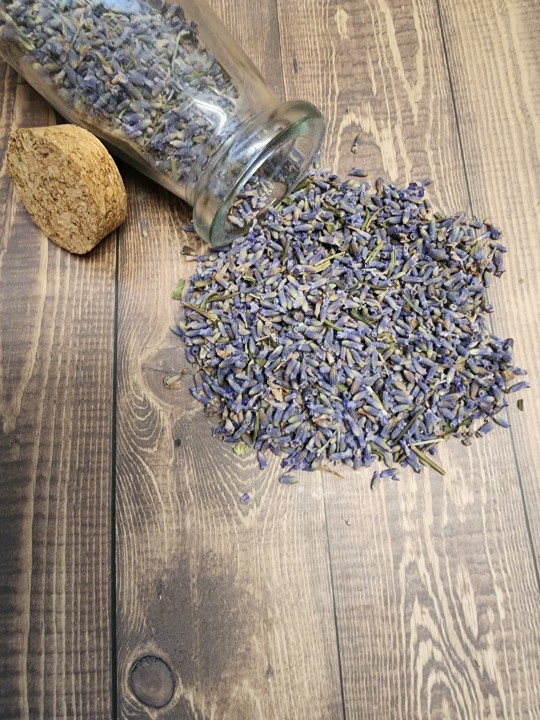
Lavender
Lavandula officinalis
Known as: Elf leaf, nard, nardus & spike
Related plants: A member of the mint family Lamiaceae, there are genus of 47 known species of lavender. It includes well known plants such basil, mint, rosemary, sage, savory, marjoram, oregano, hyssop, thyme, lavender, and perilla, as well as catnip, salvia, bee balm, wild dagga & oriental motherwort.
Parts used: Flowers
Habitat and cultivation: This flowering plant is native to the the Mediterranean
Plant type: Perennial
Region: Most are hardy from Zones 5 to 9 | Spanish Lavender (L. stoechas) is only hardy in Zones 7 to 9.
Harvest: You can harvest all the budding spikes or flowers on your plant during the growing season but avoid cutting into woody growth. Don't want to take more than 1/3 of the plant at this time & limiting your harvest to flowers and buds should keep you within recommended limits. As first frost approaches, snip off woody, leafy stems & branching. You can safely take up to 2/3 of the plant at this time. Harvesting too early can stimulate more growth which you don't want since the lavender is moving into winter dormancy.
Growing tips: To grow lavender successfully it needs well-drained soil, full sun & may be a good idea to check the PH beforehand because soil too acidic may kill off your plants. It survives well in dry conditions, so you'll only have to water when the top 2 inches of soil are dry. Plant lavender in spring, once all chances of frost have passed. This beautiful, fragrant herb is a great addition to raised beds, in-ground gardens, and growing in containers spacing plants 12 to 18 inches apart.
Medicinal information: Taking lavender products by mouth, including teas and a specific oil supplement or inhaling lavender oil as aromatherapy, seem to reduce symptoms of depression & anxiety. Lavender oil is believed to have antiseptic and anti-inflammatory properties, which can help to heal & burns & bug bites. Some studies suggest that consuming lavender as a tea can help digestive issues such as vomiting, nausea, intestinal gas, upset stomach, & abdominal swelling. A study published in the Journal of Medical Microbiology found that lavender oil could be effective in combating antifungal-resistant infections. Using it as aromatherapy can also reduce colic symptoms & menstrual cramp pain.
Cautions: Lavender essential oil is possibly safe when inhaled as aromatherapy, but applying products that contain lavender oil to the skin is possibly unsafe for young cis males who haven't reached puberty. The oil seems to have hormone-like effects that could disrupt normal hormones & in some cases, this has resulted in breast growth.
Lavender might cause sleepiness and slowed breathing. Taking lavender with sedative medications might cause breathing problems and/or too much sleepiness.
Lavender might slow down the central nervous system. If used with anesthesia and other medications given during and after surgery, it might slow down the central nervous system too much. Stop using lavender at least 2 weeks before a scheduled surgery.
Magickal properties
Gender: Masculine
Planet: Mercury
Element: Air
Deities: Aradia, Elves, Faeries, Hecate & Saturn
Magickal uses:
• Place in sleep pillows to encourage peaceful sleep
• Wear as a perfume to attract a new love
• Rub on paper when writing love spells or notes for added power
• Add with rosemary to a satchet for preserve chastity
• Scatter around your home to invite protection & purifying energies
• Use in a ritual bath to lighten feelings of depression or sadness
• Wear or use in an amulet to discourage cruelty from a spouse
• Drink lavender tea before bed to aid in astral travel or dream magick
• Burn as an incense for meditation or spirit work
• Use in spells to strengthen friendships
• Purify your ritual candles & tools with a drop of oil to release any negative energies contained within them
• Hang above your door protect against evil spirits , for home blessings & to cleanse all who enter
• Rub the oil on to the base of the skull or temples to help cure the nervous exhaustion that sometimes happens after intensive magickal workings
#herb of the week#magical herbs#herbalism#lavender#witchblr#wiccablr#paganblr#witch community#witches of tumblr#witch tumblr#witchcraft#spells#spellwork#grimoire#book of shadows#spellbook#tumblr witch#witch tips#beginner witch#baby witch#beginner witch tips#witchcore#correspondence#green witchery#GreenWitchcrafts#green witchcraft#traditional witchcraft#witch#witch guide#green witch
294 notes
·
View notes
Text

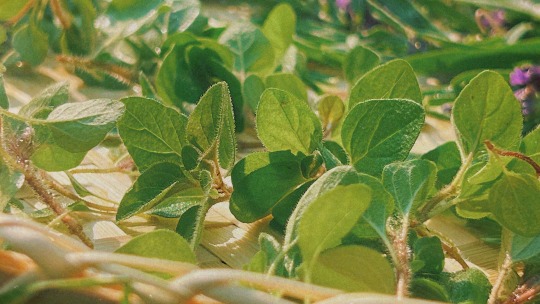
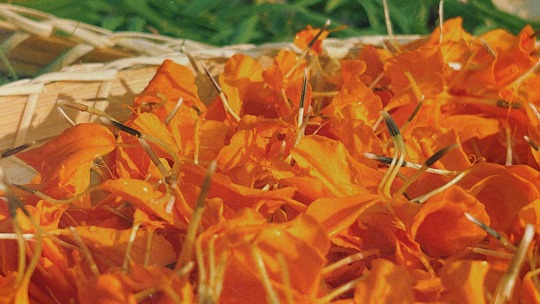
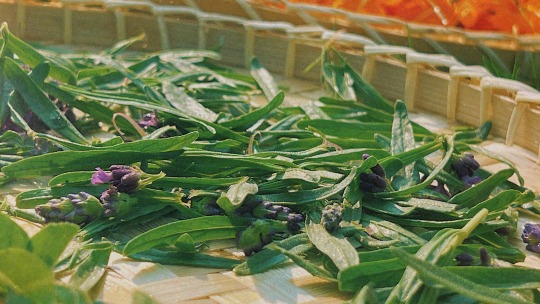
Drying some marigold, lavender (mostly leaves), and oregano to mix in with the goldenrod I harvested last week for tea. Also, how is it September already? The fuck!?
1-Sep-2023
#tea#herbal tea#herbalism#marigold#lavender#oregano#gardencore#cottagecore#cottage charm#homestead#gardening#harvest#canning and preserving#garden#plant community#plantblr#garden 2023#plants
232 notes
·
View notes
Photo
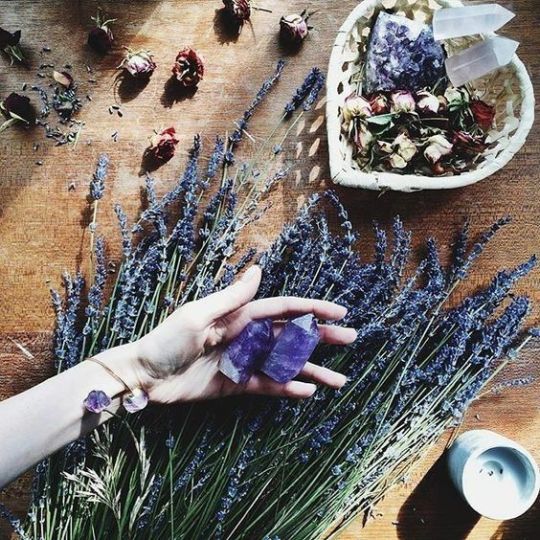
🔮 Witchy Goth & Pagan Shop 🔮
Use code “TUMBLR” for 20% off
#lavender#purple aesthetic#crystal witch#herbal witch#green witch#earth witch#witchy#witchblr#paganblr
445 notes
·
View notes
Text
American hostility to floral flavors is truly bizarre.
#also any herbal flavors other than mint#such boring toothpaste selections in the us!#i feel like i am starting to see more rose and lavender stuff around but it remains very niche#food
26 notes
·
View notes
Text
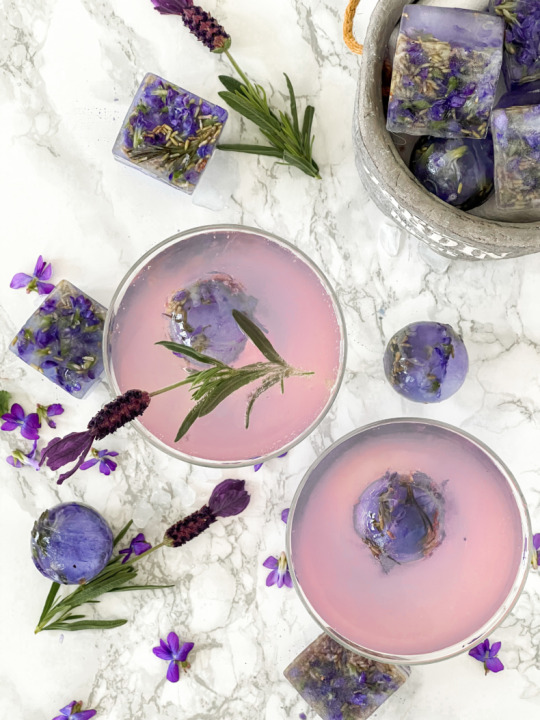

Blueberry Lavender Spritzer & Violet + Lavender Ice
#p#herbarium#herbalism#violets#Viola sororia#Viola tricolor#lavender#Lavandula spp.#blueberries#recipes#edible flowers#mocktails#cocktails#honeybee's delight#nourishing waves
97 notes
·
View notes
Text
Aromatherapy for Processing Trauma

Aromatherapy uses scent, usually in the form of essential oils, for physical and emotional well-being. Our sense of smell is very closely connected to memory, and certain smells can have an effect on our emotions and mood.
Essential Oil Safety and Ethics
Because this is the Internet and because certain multi-level marketing corporations have intentionally spread misinformation about essential oil safety, let's talk about a couple of things real quick.
You should never, ever eat or drink essential oils. These are very concentrated extracts of the active compounds from plants, and just like you would never sit down and eat 200 pounds of lavender, you shouldn't eat lavender oil. Ingesting essential oils can have very serious side effects, up to and including organ failure and death. Just don't.
If you want to work with a liquid plant extract that you can take internally, I recommend trying a tincture or a tea.
Use caution when applying essential oils topically. Again, essential oils are very concentrated, so they can cause skin reactions even if you are not normally allergic to the plant they come from. Always do a patch test to check for an allergic reaction before applying an essential oil to your skin or putting it in a bath. Some, like cinnamon oil, should never be used topically.
Always dilute your oils. Whenever you put essential oils on your skin, mix them with a carrier oil (like olive oil or coconut oil). Typically for adults you want to only use two drops of essential oil for every teaspoon of carrier oil, but you might use a stronger or weaker concentration depending on your body and your needs. If you're adding essential oils to your bath, make sure you mix them into a bath salt (either Epsom salt or plain table salt) before adding them to the water.
When you diffuse essential oils, make sure you don't use too much. For a typical aromatherapy diffuser, you really only need 1-5 drops of oil.
Be careful using essential oils around children and pets. Contrary to what some MLMs say, essential oils may not be safe for your baby or your dog. If you have kids, make sure your oils are stored out of their reach. Don't diffuse essential oils around babies under 6 months old, and don't apply oils to the skin on children under 3 years old. If you use essential oils on your older child's skin, they should be TWICE as diluted as for an adult (so you would use HALF as much essential oil for the same amount of carrier oil). If you diffuse oils around your kids, don't run the diffuser for more than 60 minutes. Follow other essential oil safety rules.
If you have a pet in the house, only diffuse essential oils in open, well-ventilated rooms, never let the diffuser run for more than 60 minutes, and make sure your pet is able to leave the room if they want to. Never apply essential oils to a pet's skin. Research your oils to make sure they aren't toxic to your pets.
Moving from safety concerns to ethics concerns, don't use essential oils in public spaces. Many people don't tolerate these scents well because of health conditions, allergies, or chemical sensitivities. For this reason, you should only practice aromatherapy in your own private space.
Try to be an eco-conscious consumer. It takes a whole lot of plant material to make essential oils -- one pound of lavender oil requires 250 pounds of lavender buds! That's a lot of natural resources. Even "wildcrafted" or "wild harvested" products may still be contributing to overharvesting. Try to limit your environmental impact by using oils sparingly, avoiding oils made from endangered plants, buying from companies that use sustainable harvesting practices, and reusing or recycling the bottles.
Making Aromatherapy Trauma-Sensitive
Because scent is so strongly connected to memory, scents that remind us of a traumatic event can trigger anxiety or panic, or even make us physically ill. Before using aromatherapy, think carefully about the scents you feel drawn to and whether they may be triggering for you.
For example, if your abuser wore a floral perfume with rose and geranium notes, the scents of rose and geranium might activate your fight or flight response, even though those are usually considered calming scents. If your abuser wore a cologne or deodorant with a lot of woodsy notes, you might want to avoid woodsy essential oils like cedarwood.
If at any point you start to feel triggered or activated when using aromatherapy, stop using that scent until you can speak to a therapist or counselor about your experience.
Helpful Essential Oils for Trauma Survivors
Note: Much of the information in this section comes from Elizabeth Guthrie's book, The Trauma-Informed Herbalist.
Lavender (Lavandula angustifolia): The ultimate relaxing scent. Guthrie says that lavender "allows a person to completely relax. It is a wonderful tonic for a person who has been overthinking situations." Lavender is really helpful for anxiety and paranoia, especially if your anxiety takes the form of doom spiraling or thinking about worst case-scenarios.
Cedarwood (Cedrus virginiana): An excellent grounding scent. Guthrie says that cedarwood "is loved for its ability to help people reconnect to themselves." Be aware that Atlas Cedarwood (Cedrus atlantica) is endangered due to overharvesting -- try to use more sustainable varieties.
Rosemary (Rosmarinus officinalis): Great for mental clarity. Rosemary strengthens memory, and it can be useful for people who struggle with short-term memory or who are dealing with brain fog or gaps in memory as a product of trauma. Rosemary promotes alertness.
Clary Sage (Salvia sclarea): Promotes a sense of well-being and helps decrease feelings of stress.
Sweet Marjoram (Origanum majorana): Brings balance to the body and mind. Marjoram has a relaxing effect and can help release tension.
Geranium (Pelargonium graveolens): Another relaxing scent. Guthrie says that geranium "can also help a person who is feeling jumpy, as if they're living in a horror movie and a jump scare is just around the corner."
Chamomile (Anthemis nobilis): Reduces anxiety and relieves feelings of depression. Chamomile also famously helps with sleep issues such as insomnia.
Patchouli (Pogostemon cablin): Very strong grounding. Guthrie recommends patchouli to help reset the sleep-wake cycle for people struggling with insomnia and/or fatigue.
Bergamot (Citrus bergamia): Balances emotional energy and uplifts the mood. Guthrie recommends it for brain fog from exhaustion and for aid in letting go of anger.
Eucalyptus (Eucalyptus globulus): A superstar for healing, whether physical, mental, emotional, or even spiritual. Guthrie recommends eucalyptus "to jumpstart the emotional healing process" and "to release the feeling that their trauma is part of their identity."
Sweet Orange (Citrus sinensis): An uplifting and energizing scent. Great for bringing up the mood, promoting happiness, and helping with burnout.
Aromatherapy on a Budget
Listen, y'all. Essential oils are expensive. Ethically sourced essential oils are even more expensive. I save some money by 1.) using essential oils sparingly, and 2.) buying pre-mixed blends. I'll typically look for a blend that contains several oils that I want to work with instead of buying each oil individually. Right now I'm working with the "Harmony" synergy blend from Eden's Garden, which contains lavender, cedarwood, rosemary, clary sage, sweet marjoram, geranium, and chamomile.
If you can't find a blend that has all the qualities you want, you can still save money by buying a blend with most of the qualities you're looking for, then adding one or two low-cost oils. For example, I wanted a slightly more grounding effect than the blend I'm using has, so I add a little bit of patchouli oil to bring in that earthy, grounding quality.
Sources:
The Trauma-Informed Herbalist by Elizabeth Guthrie
"5 Benefits of Clary Sage Oil" by Corey Whelan
"Marjoram Essential Oil" on AromaWeb
"The 8 Proven Benefits of Chamomile Oil and How to Use It" by Jill Seladi-Schulman, Ph.D.
"Essential Oils & Pets" on Saje
"Are Essential Oils Safe for Kids?" by Teresa Carr
#smell goods do a lot and should not be underestimated#aromatherapy#essential oils#trauma#trauma survivor#trauma processing#trauma informed#the body keeps the score#herbalism#herbs#lavender#cedar#cedarwood#witchblr#witch#witchcraft#green witch#green witchcraft#cottage witch#kitchen witch#kitchen witchcraft#ptsd#complex trauma#complex ptsd#cptsd recovery#abuse tw#my writing#long post#recovery#plant magic
300 notes
·
View notes
Text


𝑷𝒓𝒐𝒔𝒑𝒆𝒓𝒊𝒕𝒚 & 𝑱𝒐𝒚 𝑯𝒆𝒓𝒃𝒂𝒍 𝑰𝒏𝒇𝒖𝒔𝒆𝒅 𝑶𝒊𝒍
Hello witches, I want to share with you a recent magic oil I made for candle dressing & spell making🕯✨️ you can also use it for your overall craft,
You'll need:
🌼 Chamomile
🌼 Calendula Flower
🌼 Lavender
🌼 Clove Powder (*can be replaced with whole clove)
🌼 Copal Incense (*I used copal resin for a concentrated infusion)
🌼 Carrier Oil (*I used olive oil)
🌼 Small Jar
Instructions ~
Cleanse your jar with salvia/sage incense, or cleanse with your preferred method,
Gather your dry ingredients into your jar: the chamomile, calendula flower, lavender, love & copal resin,
Set your intentions for your herbs, I like using my hand over each herb before putting them inside the jar, guiding each herb with which correspondence or property I'll need,
Pour in your carrier oil of choice, do it slowly allowing the oil to get to the bottom, this will get rid of any air bubbles,
Say your last intentions for the overall oil, close with the cork or cover, and let it sit for a few days to allow the infusion to set in,
When the oil is done resting, pour your concentration infusion unto another bigger jar without the herbs, it's okay if bits go in though,
Finally, top off the remaining or the jar with more olive oil,
And that's it! Your Prosperity & Joy Oil is ready for use, whether you want to dress a yellow candle to bring joy, happiness, prosperity & clarity to your daily life, or use topically before bed, etc.,
*Please note that this or any oil infusion posted here is NOT meant to be ingested/eaten, keep away from children & animals !!
Happy Crafting!
#wicca#witchcraft#white spell#spell#prosperity#prosperity spell#magic#witches#witch#pagan#eclectic#spells#spellcraft#clarity#copal#chamomile#lavender#calendula#happiness#green witch#witchy oil#infused herbal oil#herbs#candle magick#good luck#joy#witches of tumblr#witchblr#witch blog#witchy vibes
19 notes
·
View notes
Text

Lavender is one of my favorite plants, having both medicinal and spiritual properties. 💜🌿
It is a calming and soothing herb that has been used for centuries to promote relaxation, reduce stress and anxiety, and improve sleep quality. You can brew a tea of dried lavender flowers after a long day to unwind and have a good night's sleep. 🫖☕️
Lavender is also used to promote peace in the home. Dried lavender sprigs can be bundled together and used to smoke smudge the home, removing stagnant and negative energies for the energies of peace and calm to enter.
Lavender is believed to foster self-love. Dab some of the essential oil to your wrists at the start of every day.
Lavender is sometimes used in divination rituals to promote intuition, psychic abilities, and connection to the spiritual realm. You can put dried lavender in a pouch under your pillow to help your intuitive and psychic abilities as you sleep. 🌌
#lavender#herbalism#witchcraft#green witch#tarot#witchblr#tarot reader#witch community#wicca#spirituality#nature
7 notes
·
View notes
Text

#aesthetic#purple#lavender#pinterest#pastel#lilac#food#bows#pretty#dessert#tea#drinks#drink#herbs#herbal#floral#flower#flowers#plants#111dalia
22 notes
·
View notes
Text
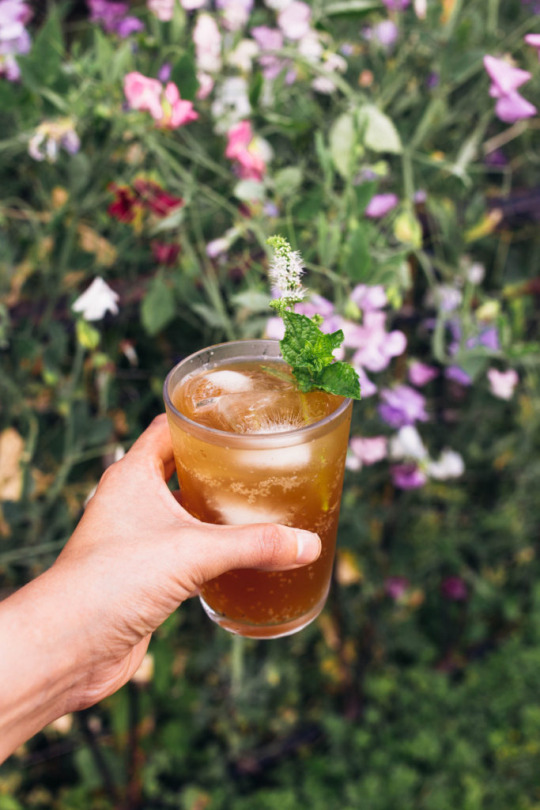
Chaga Cola / Herbal Soda Pop (Vegan)
#vegan#drinks#iced tea#soda#herbal tea#chaga#medicinal mushrooms#cinnamon#ginger#star anise#orange#lime#lavender#edible flowers#coriander#nutmeg#vanilla#coconut sugar#cane sugar
12 notes
·
View notes
Text
Lucid Dreams: Unlocking the Power of Your Dream World
Hey there, dreamers! Have you ever had a dream so vivid and real that you knew you were dreaming? That, my friends, is what we call a lucid dream. It’s like having a front-row seat to the most immersive movie, where you’re the star, director, and audience all at once. Today, let's dive into the fascinating world of lucid dreams, dream journeying, and how bath teas infused with dream herbs can elevate your dream experiences and relaxation.
What Happens in a Lucid Dream?
Lucid dreaming is when you're aware that you're dreaming while still in the dream. It's an incredible state where you can control the dream environment, interact with characters, and explore your subconscious mind. Imagine flying over a beautiful landscape, meeting historical figures, or even creating your own magical world—all within your dream.
The Science Behind Lucid Dreaming
Lucid dreaming occurs during the REM (Rapid Eye Movement) stage of sleep, which is when most vivid dreams happen. When you become lucid, parts of your brain associated with self-awareness and decision-making light up, giving you the unique ability to direct the dream’s course.
Dream Journeying: Exploring the Dream World
Dream journeying is an extension of lucid dreaming, where you consciously travel through the dreamscape with a specific intention or goal. It's a form of guided meditation within the dream world, allowing for profound exploration and discovery.
Meeting Spirit Guides One of the most profound aspects of dream journeying is the opportunity to meet spirit guides. These guides can appear as wise mentors, animals, or even abstract forms. They offer guidance, wisdom, and insights into your life and spiritual journey. Meeting them in a lucid dream can be a transformative experience, providing you with answers to questions and a deeper understanding of your path.
Visiting Dream Schools In lucid dreams, some people report visiting schools or places of learning where spirits or higher beings provide instruction. These dream schools are often filled with knowledge that feels otherworldly yet profoundly relevant. Whether it’s learning about ancient wisdom, personal growth, or even practical skills, these dream encounters can leave a lasting impact on your waking life.
Bath Teas Infused with Dream Herbs
Now, let’s talk about how to prepare for these incredible dream journeys. One of the most effective ways is by using bath teas infused with dream herbs. These herbal baths not only help you relax but also prepare your mind and body for lucid dreaming.
Why Bath Teas?
Bath teas are an excellent way to combine the soothing effects of a warm bath with the therapeutic benefits of herbs. When you soak in a bath infused with dream herbs, your skin, which is the largest organ of your body, absorbs these beneficial compounds. This can help relax your muscles, calm your mind, and set the stage for a restful and dream-filled night.
Dream Herbs for Lucid Dreaming
Here are some powerful herbs known for their ability to enhance dreams and relaxation:
Mugwort: Known as the “dream herb,” mugwort is famous for its ability to enhance vivid dreams and aid in lucid dreaming.
Lavender: This calming herb helps reduce anxiety and promotes restful sleep, making it easier to enter the dream state.
Chamomile: With its soothing properties, chamomile is perfect for relaxing the body and mind before sleep.
Valerian Root: Known for its sedative effects, valerian root can help you achieve a deeper, more restful sleep, conducive to dreaming.
Benefits of Using Bath Teas
Relaxation: The warm water combined with calming herbs helps to relax your muscles and ease tension, creating the perfect pre-sleep ritual.
Enhanced Absorption: Since your skin is the largest organ of the body, it absorbs the herbal compounds effectively, allowing their benefits to penetrate deeply.
Improved Sleep Quality: Herbs like lavender and chamomile help promote a more restful and uninterrupted sleep, which is crucial for entering the REM stage where lucid dreaming occurs.
Preparation for Lucid Dreaming: The calming effect of the herbs helps quiet the mind and prepares you mentally and physically for the dream journey ahead.
How to Use Bath Teas
Choose Your Herbs: Select a combination of herbs based on your desired effect. For lucid dreaming, mugwort, lavender, and chamomile are great choices.
Prepare the Bath Tea: Place the herbs in a muslin bag or a tea infuser. You can also use pre-made bath tea bags available online or in health stores.
Run Your Bath: Fill your bathtub with warm water. Avoid using very hot water as it can be dehydrating.
Steep the Herbs: Place the herb bag in the tub and let it steep for a few minutes, allowing the water to absorb the herbal essences.
Soak and Relax: Get into the bath, relax, and let the herbs work their magic. Spend at least 20 minutes soaking to get the full benefits.
Conclusion
Lucid dreaming and dream journeying offer a powerful gateway to explore your inner world, gain wisdom, and experience adventures beyond your wildest imagination. By preparing your body and mind with bath teas infused with dream herbs, you can enhance your ability to relax, dream vividly, and even meet your spirit guides. So, why not give it a try? Dive into the world of lucid dreaming and discover the magic that awaits.
#How to lucid dream#Meeting spirit guides in dreams#Dream herbs for lucid dreaming#Bath teas for relaxation#Herbal bath teas#Mugwort for dreams#Lavender sleep benefits#Chamomile relaxation#Valerian root for sleep#Enhancing dreams with herbs#Lucid dreaming techniques#Dream herbs bath tea#Benefits of herbal baths#Skin absorption of herbs#Preparing for lucid dreams#Dream ritual baths#Improving sleep quality#Natural sleep aids
6 notes
·
View notes
Text
#witchcraft#eclectic witch#magick#witch stuff#witchcraft community#witch community#herbalism#herbs#lavender
24 notes
·
View notes
Text

I always forget how much 8oz of herbs is 😅 won't need lavender for a while.
Witchy confession: Most of my herbs I buy from either Amazon or the grocery store, and they are all food grade. If I can't cook or make tea with it, then I don't use it in my practice.
#herbal magick#herbal tea#cooking#kitchen magic#kitchen witch#lavender#witchy confessions#witchblr#witchcraft#witch#witchy#witchy things#witchcraft community#witch community#paganlife
13 notes
·
View notes
Text
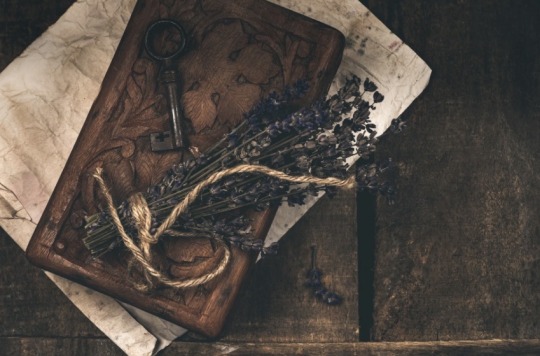
#purple flowers#book of shadows#witchcraft#skeleton key#faerie#faerycore#bookblr#witchy decor#witchcore#witchblr#witch aesthetic#cottage aesthetic#cottagecore#brown moodboard#pagan witch#paganblr#dried flowers#spiritual awareness#herbalism#plant photography#plantlife#plantblr#lavender#grimoire#vintage#nostalgia#books
8 notes
·
View notes